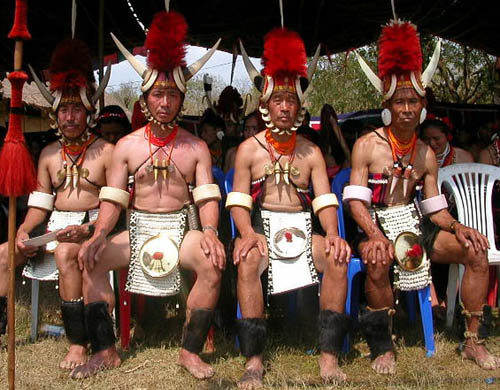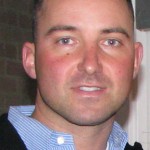In the Spring of 2007, I returned to my full time job after an 18-month deployment that included a year in Iraq and realized that the world of public relations had changed.
While I was an early adopter of social sites like LinkedIn, most PR pros weren’t generally using social media for PR purposes.
Twitter, which was founded in 2006, didn’t exist when I left.
My soldiers told me MySpace was a place to meet girls, so it didn’t seem to have a practical business application and I didn’t want another password to remember.
Facebook had a mere 20 million registered users.
Posterous, Amplify and Quora had yet to be founded.
Image: familymwr via Flickr, CC 2.0
When settling back into my job,
I realized PR was changing, but with a little help, I adapted easily.
As I prepare for another year-long deployment, between packing and planning, I’ve found a little time to reflect on why: at times the work in uniform can be amazingly similar to my work in PR.
Many people think of weapons, tanks and helicopters when they think of the Army.
But just like there’s more to PR than just publicity, there’s much more to a day in the uniformed life than just maneuver. Here are six things the Army has taught me about PR:
1. Engage.
It’s the title of a popular book on social media. To the Army, engagements often mean meeting with people in the community.
This is an important tool in both a counterinsurgency strategy and a PR campaign.
An insurgency lives through support of the people. If we engage the community, build trust, and demonstrate they have a vested interest in the outcome, we might tip the scale of favor.
Likewise, these are also the fundamental building blocks for success in social media for any organization.
2. Sphere of Influence.
The people we want to engage are the “influencers” – people who have the ability to cause measurable actions.
The Army uses the term sphere of influence or “SOI,” which means understanding the social dynamics and hierarchy in the physical world.
Which tribe is affiliated with another?
What links or separates two local political organizations?
Is the source of conflict ethnic or sectarian?
Who will the people follow?
These are the similar to the types of questions we consider when planning PR strategies both on and offline.
3. A bigger perspective.
It’s easy to get wrapped up in the day-to-day of our own little worlds, yet the PR pros that excel are those who have the ability to connect seemingly disparate dots, to identify trends and nest their ideas neatly within those trends.
Living amid another culture, learning a bit of their language and understand the history has given me a broader perspective.
In business and PR, the Web is making the world a smaller place. Our influencers and audience may, in fact, reside outside the borders of the United States.
I literally have dozens of connections on Twitter with PR pros in the UK, Singapore and India, for example.
4. Prioritize.
My First Sergeant is my right-hand man, the most senior enlisted soldier in my unit and certainly the most experienced.
He includes a quote at the bottom of his email signature block that reads, “When everything is a priority, nothing is a priority.”
It’s a constant and tactful reminder to my younger enthusiasm, which might otherwise drive me to develop a more aggressive training schedule that’s beyond what can be realistically accomplished.
The translation to my work in PR could not be more closely correlated.
Amid a landscape that is laden with opportunity, we might be tempted to sign up for every new social media service at the expense of focusing on those that will return benefits to the organization.
While it’s worthwhile to experiment, we have got to prioritize.
5. An extended community.

Image: rajkumar1220 via Flickr, CC 2.0
Especially in the reserve components of the military, when you call a soldier to active duty, the change is stressful for those around them.
Spouses are separated by thousands of miles, perhaps raising the kids on their own, and employers are stuck trying to cover the work load.
These sacrifices are every bit as patriotic as the soldier’s service and if the community around the soldier isn’t prepared, then the soldier won’t be prepared.
Preparing for change is a critical point we address in PR every time we launch a new product, or add more features.
We spend countless hours preparing the community with pre-briefs, developing FAQs and blog posts to address questions.
It’s usually during these times we realize our community is extended – and much larger than we may have realized.
And I’d be remiss if I didn’t give a shot out to my own community, including my employer Vocus, which has gone above and beyond to be supportive and understanding.
6. Stay humble.
Frank Buckle was the last living American World War I veteran and recently passed away at age 110.
In his time, nearly every American was affected by the conflict overseas.
Today, with less than 1 percent of Americans serving in harm’s way, it’s a very different story.
Even so, support for men and women in uniform has never been higher.
I’m always amazed when I’m out in public in uniform how many people approach me and say, “Thank you for your service.”
Serving is a choice and a privilege and it doesn’t entitle those serving to special recognition; though when it’s offered, it’s humbling.
Humility is an important characteristic for PR practitioners in social media. We are not entitled to likes, fans or followers – these are earned and should not be taken for granted.
When I return this time around,
it’ll be the Spring of 2012 and I wonder what changes will be waiting.
I hope to some degree, I’ll be able to keep better tabs on news from home, given the ubiquity and accessibility of Twitter and other social sites.
In the meantime, I’m hoping the Army will teach me six more things about PR.





![[EVENT]: PR Hacks for Small Biz (online)](https://shonaliburke.com/wp-content/uploads/2021/06/FB-Ad-1200x800-01-01-01-Copy-500x383.jpeg)





[…] a casual conversation with @Shonali on Twitter about it led to this guest post on her blog: 6 Things The Army Taught Me About PR. Quite frankly, I was floored by the reaction – and my the number of personal messages I […]
[…] for a long while I worked hard at keeping it separate and quiet. Only a couple years ago did I start writing about it and including it as part of my social media identity, because I discovered, people wanted to know. […]
[…] to management in the civilian world, and I always enjoy writing about how my part-time work in the Army relates to my full-time work in PR. To that end, here are 10 tips for 1:1 meetings. 1.Be disciplined. The best thing that […]
[…] this two-part series was dreamed up before @Frank_Strong published his March piece on “6 Things the Army Taught Me About PR,” I would be remiss not to point people in his direction as well, as he prepares to deploy […]
@applewoody I can’t believe they actually said they “wouldn’t hold” your service against you. What rotters.
@Frank_Strong I come from, and have married into, a family with strong military ties. My maternal grandfather was a senior IAF (Indian Air Force) officer, and my father served briefly in the Air Force. My late father-in-law was a Navy pilot in Vietnam, and my husband and all his siblings, including his sister, are all veterans or currently serving (two of my brothers-in-law).
When I moved to the US, I really wanted to serve, and there wasn’t a war on at the time. I went down to the recruiting office, and they were very nice to me but because I was a permanent resident and not a citizen, I couldn’t sign up. And then, by the time I became a citizen, it was too late. I don’t always agree with the reasons the US goes to war, and am not a fan of war in general, but have every respect for everyone who serves, as well as their families who deal with so much.
Kudos to you, Frank.
@applewoody That’s pretty dramatic — thank you for sharing your story. And thank you for your service!
Frank: Like so many, I returned to a country that looked down on anyone who served in the military, even if their skill set was strong. When I took my first civilian job, in public affairs at the HQ of the Allstate Insurance Company, the department director who hired me said, “We won’t hold it against you that you served in Vietnam.” It was another 30 years before anyone actually thanked me for my service. Heading corporate communications for McDonald’s required many of the lessons on community relations and outreach that you outlined in your excellent post.
@applewoody What a great story Chuck, from Vietnam to McDonald’s. I can’t imagine what that place must have been like — and the cultural climate here at home once you returned. Thank you for all you’ve done!
Frank: My first job as a PR professional was as an information officer in the late 60s, at the height of the Vietnam War. I learned so much on the job, as you clearly have, in both combat and domestic IO assignments. DINFOS was a terrific “finishing school” in PR. I recall sharing my learnings from my military experience that were relevant to my civilian PR career when I gave a presentation at a DINFOS meeting 30 years later. I suspect you will too. I cimpleted my PR career as corporate communications officer and chief spokesperson for McDonald’s, and now I volunteer with several not-for-profits. What I learned in the Army served me well, and it will interesting to hear more of your observations during and after your next deployment. Stay safe, and thanks for you service to the country. Too bad we have to go to war to provide bright young people like yourself such professional growth and service opportunities, but make the most of the hand you are delt
Chuck Ebeling
@Bill_PRSA Thanks for the kind words Bill. I probably should have noted, I’m not a public affairs officer, but rather an infantry officer. Still my experience in the corporate and agency world has made me realize there are indeed applications of my civilian job that relate to my military role and vice-versa. Indeed, in the current operating environments all around the world, an ability to relate to the public is important for everyone – even for the conventional soldier. That said, I have definitely noticed some of PRSA’s efforts to reach out to the PAO community. Well done. Thank you!
Hi Frank –
This was a brilliant post, thank you. Here at PRSA, every year we honor the best work done in public relations through our Silver Anvil Awards Program, and we are not only seeing more entries from the military, but those awards are winning – last year, the overall best honors went to the Air Force. We also kicked off a new program last year, APR+M, specifically for communicators in the military, so that they could become accredited in a way that officially recognized the unique role they play. In short, we all want to not only thank you for your service, but to let you know that, as an organization, we’re doing our best to recognize and support the work and sacrfice that you – and all men and women in uniform – make for our country. Those lessons in PR that you cite are making their way throughout the services!
With gratitude,
Bill Murray
President and COO, PRSA
@Frank_Strong Our parents have the coolest stories, don’t they? I could probably fill a book with the stories I’ve heard from my parents and grandparents… and probably should sooner than later.
Wow, really shocked at the response! Thank you.
Davina: Many thanks. I hope to be online now and again even while away…perhaps I can write a few posts about PR observations over there. Just how much remains to be seen.
Tabitha: Thanks for the kind words. I’m sure I can come up with something later! It teaches me something everyday!
Shonali: Thanks for the opportunity. Couldn’t agree more with your “Remarkable” post. This is true on and offline. For example, just visited my mother, one last trip before heading out and in a conversation with her one evening, I learned something about how she got started in her career I never knew. Truly remarkable. Even for those closest to us.
Another thanks for your service, and this post. Technology has certainly changed things and yet, it’s the tools. Writing, messaging, communication itself remains the same IMO. Really agree with getting a broader perspective, I often try to give clients a wide-angle lens view of the market and their business, not just the communications side. Love the priority quote, so true; some things will take the driver’s seat and it’s important to recognize and identify what the top priorities really are. Looking forward to your safe return and more lessons in PR.
Frank, thank you so much for your service! I can’t express my gratitude for those in the military. Your post shed some light on particular aspects of military service people don’t often think of. I look forward to seeing the six additional things the Army teaches you about PR! Best wishes for a safe return!
[…] 6 Things the Army Taught Me About PR […]
Frank, I was really impressed when you told me of your military background, and it made me think about how little we know about the people we interact with on a day-to-day level in social networks – hence my recent post about finding the “remarkable” in one’s networks. Thanks so much for sharing this, for what you do, and I hope that your tour of duty (is that the term?) is successful and that you return to us safely.